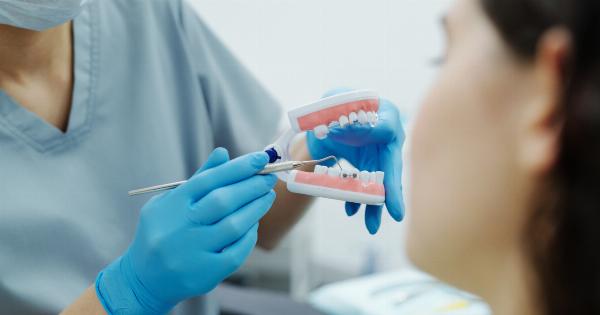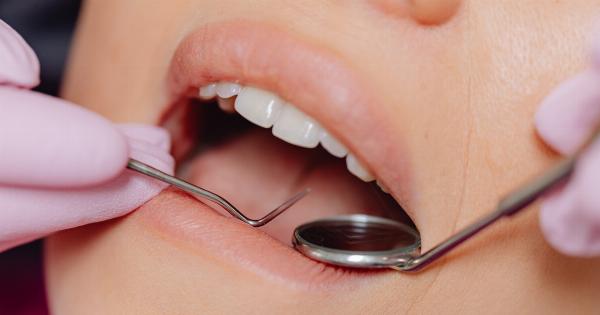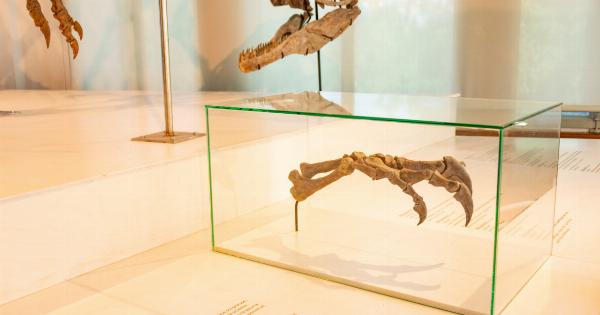Do you experience tooth pain? You might think that tooth pain is always a result of cavities or dental decay. However, there are many unexpected reasons for tooth pain that you may not be aware of.
It’s important to identify the underlying cause of your tooth pain in order to seek appropriate treatment. In this article, we will explore 10 unexpected reasons for tooth pain.
1. Sinus Problems
Believe it or not, sinus problems can cause tooth pain. The roots of your upper teeth are in close proximity to your sinuses. When you have sinus congestion or an infection, the inflammation can put pressure on these roots and cause tooth pain.
This pain is usually felt in the upper teeth and may be accompanied by other sinus-related symptoms such as nasal congestion and a runny nose.
2. Temporomandibular Joint Disorder (TMJ)
Temporomandibular Joint Disorder (TMJ) is a condition that affects the jaw joint and surrounding muscles. It can cause pain and discomfort in the jaw joint, face, and even the teeth.
TMJ-related tooth pain often manifests as a dull ache or a sharp, shooting pain. Other symptoms of TMJ disorder include jaw clicking or popping, difficulty in opening or closing the mouth, and headaches.
3. Tooth Abscess
A tooth abscess is a pocket of pus that forms due to a bacterial infection. It occurs when bacteria invade the dental pulp (the innermost part of the tooth) through a cavity, crack, or a dental injury.
Along with severe tooth pain, abscessed teeth can be accompanied by swelling, fever, and a bad taste in the mouth. Prompt dental attention is required to treat a tooth abscess and prevent the spread of infection.
4. Teeth Grinding
Bruxism, or teeth grinding, is a common problem that can lead to tooth pain. Grinding or clenching your teeth puts excessive pressure on your tooth enamel, causing it to wear down over time.
This can expose the sensitive dentin layer of your teeth, leading to tooth sensitivity and pain. Teeth grinding can be caused by stress, an abnormal bite, or sleep disorders. A nightguard or splint can help protect your teeth and alleviate tooth pain caused by grinding.
5. Cracked Tooth
A cracked tooth is another unexpected cause of tooth pain. It can occur due to trauma, biting on hard objects, or even from normal chewing. A cracked tooth may not always be visible to the naked eye, making it difficult to diagnose.
However, when pressure is exerted on the cracked tooth, it can cause sharp, intermittent pain. Treatment for a cracked tooth may involve dental bonding, a crown, or a root canal, depending on the severity of the crack.
6. Gum Recession
Receding gums expose the roots of your teeth, which are not protected by enamel. This can lead to tooth sensitivity and pain, especially when consuming hot, cold, or sweet foods and beverages.
Gum recession can be caused by aggressive brushing, gum disease, hormonal changes, or even genetics. Proper oral hygiene practices, such as using a soft-bristled toothbrush and gentle brushing techniques, can help prevent gum recession and tooth pain.
7. Orthodontic Treatment
If you’re undergoing orthodontic treatment with braces or aligners, you may experience tooth pain or soreness. This is a normal part of the tooth movement process.
As your teeth gradually shift into their new positions, they may become tender or achy. Over-the-counter pain relievers, a soft diet, and rinsing with warm saltwater can help alleviate the discomfort. If the pain persists or becomes severe, consult your orthodontist.
8. Erupting Wisdom Teeth
Wisdom teeth, also known as third molars, typically start erupting in the late teens or early twenties. The eruption of wisdom teeth can cause significant tooth pain, especially if there isn’t enough space for them to come in properly.
Wisdom teeth can become impacted or partially erupted, leading to infection and inflammation of the surrounding gums. Removal of impacted wisdom teeth is often necessary to relieve pain and prevent future complications.
9. Dental Trauma
An injury or trauma to the teeth, gums, or jaws can cause tooth pain. This can occur during sports activities, accidents, or falls. Dental trauma can range from a minor chip or fracture to a complete avulsion (knocked-out tooth).
Immediate dental treatment is crucial for both the pain relief and long-term health of the affected tooth. Your dentist will determine the appropriate treatment based on the severity of the trauma.
10. Nerve Damage
Nerve damage can result in tooth pain that is difficult to diagnose. Trauma, infection, or dental procedures such as root canals can sometimes cause damage to the nerves inside a tooth.
This can lead to persistent or shooting pain, even after the initial cause of the pain has been treated. If you suspect nerve damage as the cause of your tooth pain, consult your dentist for further evaluation.





























